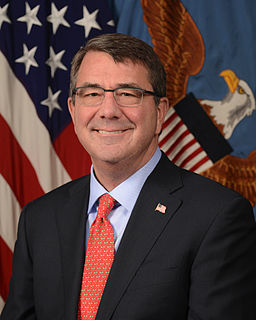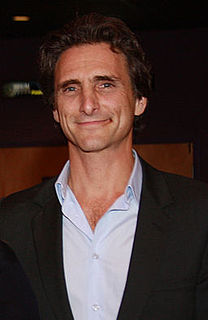A Quote by George Friedman
It has always struck me as the world's great fortune that the two great superpowers were the United States and the Soviet Union, who managed the Cold War with meticulous care in retrospect. Imagine the European diplomats of 1914 or 1938 armed with nuclear weapons. It is easy to believe they would not have been as cautious.
Related Quotes
One of the greatest concerns that I had when I became President was the vast array of nuclear weapons in the arsenals of the United States and the Soviet Union and a few other countries, and also the great proliferation of conventional weapons, non-nuclear weapons, particularly as a tremendous burden on the economies of developing or very poor countries.
My nation faces a fundamental challenge - survival. The regime is more threatened than ever before. My forefathers had it easy. The Great Leader, my grandfather, ruled with the support of the world's other superpower at the time, the Soviet Union, as well as our China. But today, the Soviet Union is history and China has become more integrated with the Western system. And the United States seeks regime change in my country. And yet, we have survived with our ideology and system intact. How? Because we have built a protection for ourselves in the form of nuclear weapons.
The Cold War philosophy of Mutual Assured Destruction (MAD), which prevented the former Soviet Union and the United States from using the nuclear weapons they had targeted at each other, would not apply to President Mahmoud Ahmadinejad's Iran. For him (Ahmadinejad), Mutual Assured Destruction is not a deterrent, it is an inducement.
European peace movement felt that the deployment of these missiles on European soil, on German soil would be a very great danger towards the Soviet Union in that those missiles could reach the Soviet Union, make it vulnerable within five to six minutes, that it could surgical strikes, strikes into the military infrastructure and that a strike into the military infrastructure could cause in fact World War III, an atomic world war and that this could also be used for first strike, for surgical search, first strike into the Soviet Union.
The worst part of what we heard Donald [trump] say has been about nuclear weapons. He has said repeatedly that he didn't care if other nations got nuclear weapons, Japan, South Korea, even Saudi Arabia. It has been the policy of the United States, Democrats and Republicans, to do everything we could to reduce the proliferation of nuclear weapons.
The Soviet Union was brought down by a strange global coalition of Western European conservatives, Eastern European nationalists, Russian liberals, Chinese communists, and Afghan Islamic reactionaries, to name only a few. Many of these discordant groups disliked the United States intensely. But Americans were able to mobilize them to direct their ire at the Soviet Union first.
The list of American grievances is long: Pakistan developed nuclear weapons while promising the United States that it would not; the United States helped arm and train Mujahideen against the Soviets during the 1980s, but Pakistan chose to keep these militants well armed and sufficiently funded even after the Soviet withdrawal in 1989; and, from the American perspective, Pakistan's crackdown on terrorist groups, particularly after 9/11, has been halfhearted at best.
The aggressor too should know that the preemptive use of nuclear weapons would not insure victory. With modern detection systems and the combat readiness of the Soviet Union's strategic nuclear forces, the United States would not be able to deal a crippling blow to the socialist countries. The aggressor will not be able to evade an all-crushing retaliatory strike.
Here's the truth: the Soviet Union had thousands of nuclear weapons, and Iran doesn't have a single one. But when the world was on the brink of nuclear holocaust, Kennedy talked to Khrushchev and he got those missiles out of Cuba. Why shouldn't we have the same courage and the confidence to talk to our enemies? That's what strong countries do, that's what strong presidents do, that's what I'll do when I'm president of the United States of America.





































